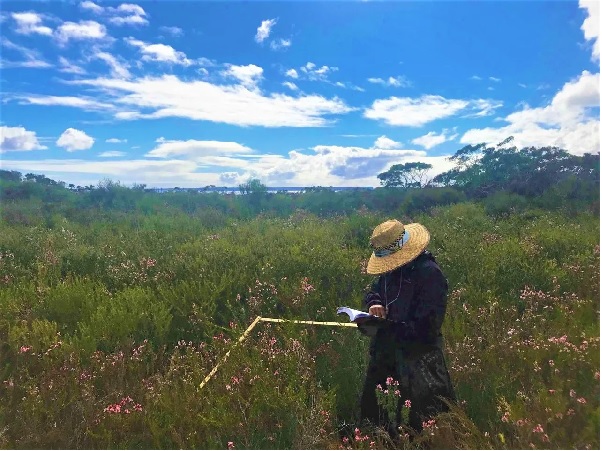According to the Federal Environmental Protection Agency, Nigeria has over 700 species of algae, 80 lower plants (bryophytes, etc.), 150 ferns, and 5,000 higher plants. Are you wondering how the abundance of plants in Nigeria can benefit the country? If yes, keep on reading as we discuss several ways Nigeria can benefit from the abundance of plants.

How Nigeria can benefit from the abundance of plants would be discussed below:
-
Provide Nigerians with Essential Nutrients to Survive
Plants are essential for the survival of life as without plants all life would starve to death, including human beings. There are hundreds of plant species in Nigeria that are edible, such as leafy vegetables, edible fruits and seeds, and starchy roots and tubers, which are great sources of essential nutrients needed to thrive.
Without the nutrients gotten from plants, human health suffers significantly. For example, a lack of eating enough vegetables can cause digestive issues, fatigue, muscle cramps, headaches, and many other concerns. It’s therefore obvious that without the abundance of edible plants in Nigeria, Nigerians will be deficient in the needed nutrients essential for survival.
-
Medicinal Application of Plants
Another way Nigeria benefits from the abundance of plants is in their medicinal application. For ages, many Nigerians have relied on plants from the families of ferns, bryophytes, and some fungi as the primary components of their healthcare, especially in rural areas. According to the World Health Organization (WHO), over 3.5 billion people in developing countries like Nigeria rely on plants for the cure of most ailments.
Aside from plants being used as herbal medicine, there has been a global upsurge in the use of plants for producing drugs. Aspirin is one of the earliest plant-derived drugs that is commonly used in Nigeria and across the globe. At the time of this writing, an estimated 25% of global prescription drugs are derived from plants.
-
Food Security
There are over 300 edible plants in the Nigerian flora, including leafy vegetables, edible fruits and seeds, and starchy roots and tubers. The abundance of edible plants makes it easier for Nigerians to access food for an active, healthy life.
Also, plants are used in making products used in cooking, such as seasoning cubes, curry, and thyme. In addition, plants are essential in making meat in the sense that the herbivores we eat plants to survive, for example, goats, antelopes, and cows, among others.
-
Provision of Timber
The abundance of tree species exploited for timber is one way Nigeria benefits from the abundance of plants. Timber is advantageous to Nigeria in several ways. The timber industry in Nigeria employs thousands of people as well as adds to the economy. More so, timber has lots of uses such as in construction, furniture making, for fuel, to make pulp and paper, and in producing plywood and veneer, among several other reasons.
Some of these tree species which were and are still exploited for timber in Nigeria include: Afzelia bipindensis, Antiaris africana,
Brachystegia nigerica, Chlorophora excelsa, Cordia platyhyrsa, Entandrophragma angolense, Eribroma oblonga,
Erythrophleum spp., Guarea cedrata, G. thompsonii, Khaya ivorensis, Lophira alata, Lovoa trichilioides, Man-
sonia altissima, Mitragyna ledermannii, Nauclea diderrichii, Nosogordonia papaverifera, Piptadeniastruni
africanum, STerculia rhinopetala, Tertninalia ivorensis, T. superba and Triplochiton scleroxylon, Daniellia oliveri.
-
Enhances Soil Fertility
When plants are abundant in a geographical entity, the soil in such an area will be healthy which in turn aids plant growth, air supply, nutrients cycling, water control, and the biological control of pests and diseases. Cover crops, even crop remains and plant residues such as stalks, leaves, and roots have been proven to improve the quality of the soil as they offer organic matter and nutrients, adjust drainage, and support important soil organisms. The abundance of cover crops (and crop and plant residues) can therefore maintain soil quality in Nigeria.
-
Beautifies Landscape
The way plants beautify the landscape in which they exist is one of the several ways Nigeria can benefit from the abundance of plants. The unique forms, colours, and textures of the numerous plants we have in Nigeria provide aesthetic appeal to the environment. The abundance of plants in Nigeria is what prevents the country from looking like a barren expanse of rock.
-
Production of Oxygen
Through the process of photosynthesis, plants capture carbon dioxide from the air to produce oxygen. Oxygen is essential for the survival of man and the vast majority of other living things. Oxygen is important to humans as it helps in building new cells and keeping the immune system strong. Without the oxygen plants produce, we would die.
-
Helps Control Erosion
Another way Nigeria can benefit from the abundance of plants is by helping to prevent erosion. The roots of plants bind the soil together which prevents the loss of topsoil during rainfall, thereby preventing erosion from taking place and subsequently increasing the amount of groundwater recharge.
Furthermore, the impact of raindrops is reduced in areas where trees are planted, thereby preventing erosion. Grassy covers also prevent runoffs during rainfall, invariably preventing the loss of topsoil which leads to erosion.
-
Provide Food for Animals
Aside from the abundance of plants providing food for human beings, plants also provide food for animals. Farmers that rear livestock rely on plants to feed the animals. Also, carnivorous animals that do not eat plants indirectly rely on plants to feed. This is so because the animals that carnivores feed on usually feed on plants to thrive.
-
Helps Keep the Climate Stable
As we’ve earlier stated in this article, plants capture carbon dioxide (which is one of the major greenhouse gases contributing to climate change) from the atmosphere, which is then converted to oxygen through the process of photosynthesis. As plants store carbon dioxide, the amount of CO2 in the atmosphere in the atmosphere is reduced, thereby keeping the climate stable. It is therefore essential for plants to be in abundance in Nigeria for the climate to remain stable. Deforestation should be discouraged.